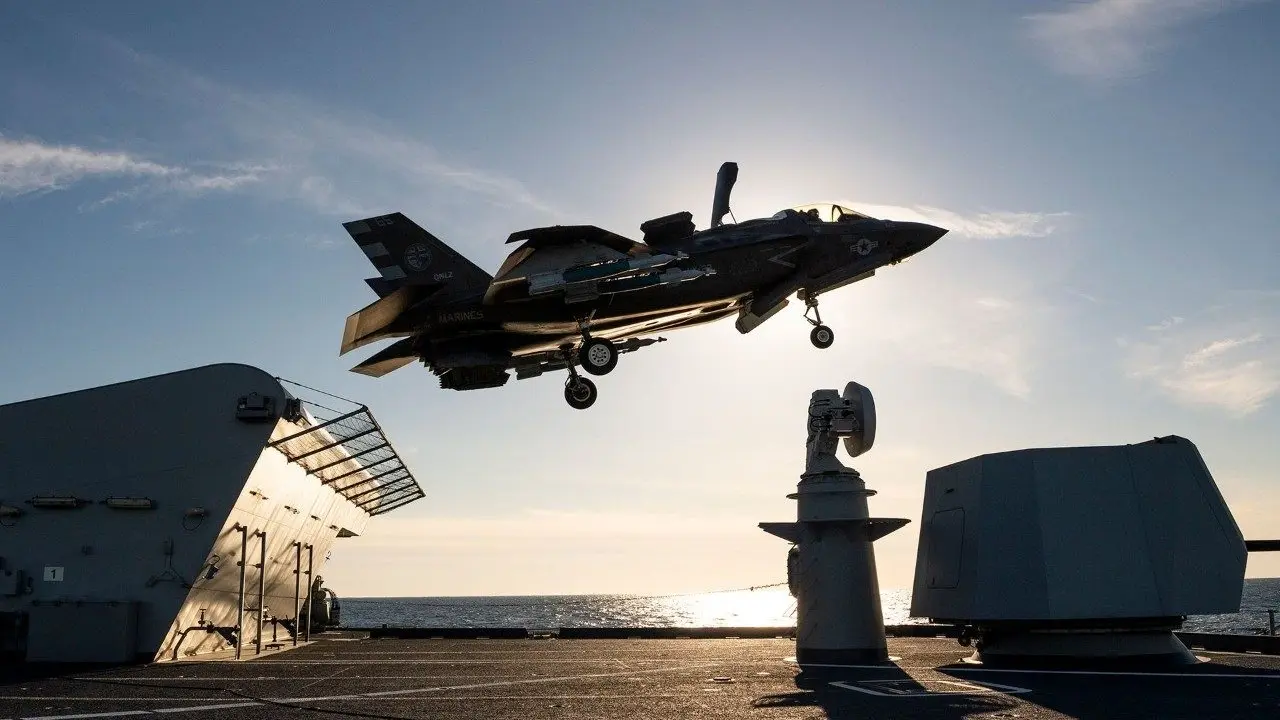Updated 11 March 2024 at 16:45 IST
F-35A gains nuclear capability strengthening NATO's deterrence posture
NATO's F-35A achieves certification to carry the B61-12 thermonuclear bomb, enhancing the alliance's deterrence posture in Europe.
- Defence News
- 2 min read

Washington: In a significant development for NATO's defence capabilities, the F-35A has been officially certified to carry the B61-12 thermonuclear bomb. This certification, achieved ahead of schedule on October 12, adds a potent new dimension to the aircraft's capabilities and enhances NATO's deterrence posture in Europe.
The F-35A's ability to deliver nuclear strikes provides NATO with a formidable deterrent against potential adversaries, particularly in light of escalating tensions with Russia. The aircraft's advanced stealth and survivability features enable it to penetrate enemy air defences with greater effectiveness, ensuring the credibility of NATO's nuclear deterrent.
Strategic implications
This certification underscores NATO's commitment to modernizing its nuclear arsenal and adapting to evolving security challenges. With the F-35A's unique capabilities, Russia's defensive strategies will need to be adjusted, enhancing NATO's strategic advantage. The earlier-than-expected achievement of this milestone reflects the culmination of over a decade of collaborative efforts involving multiple stakeholders.

Contrary to previous reports, the F-35A's nuclear certification does not depend on the Block 4 upgrade, which is welcome news amid ongoing challenges with this enhancement. While all F-35As are slated to achieve nuclear certification eventually, only designated squadrons will have the necessary infrastructure and qualifications for nuclear strike missions. The deployment of the B61-12 bombs in Europe remains a closely guarded secret, with uncertainty surrounding the timeline for their arrival.
Advertisement
Potential operational deployment
Several NATO member states, including the Netherlands, Belgium, Germany, and Italy, operate F-35As and are expected to contribute to the alliance's nuclear deterrence mission. For Germany, the F-35A's nuclear capability was a key factor in its procurement decision. While specific details regarding the operational deployment of these aircraft remain classified, they are poised to play a crucial role in safeguarding NATO's security interests.

The certification of the F-35A to carry the B61-12 nuclear bomb represents a significant milestone in NATO's efforts to enhance its deterrence posture in Europe. With its advanced capabilities, the F-35A strengthens the alliance's strategic advantage and sends a clear message to potential adversaries. As NATO continues to adapt to evolving security challenges, the F-35A's role in nuclear deterrence is poised to shape the future of transatlantic security.
Advertisement
Published By : Yuvraj Tyagi
Published On: 11 March 2024 at 16:45 IST
